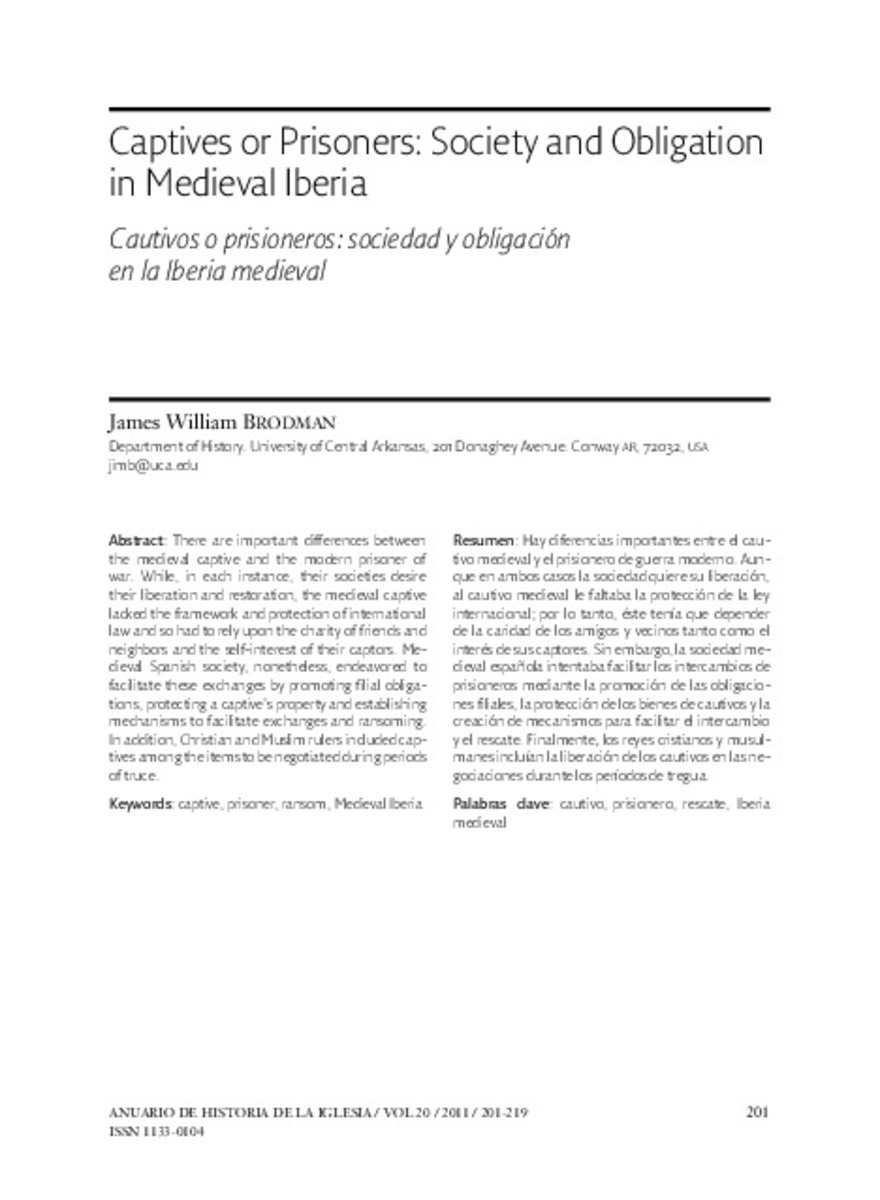Full metadata record
| DC Field | Value | Language |
|---|---|---|
| dc.creator | Brodman, J.W. (James William) | - |
| dc.date.accessioned | 2012-05-30T15:19:26Z | - |
| dc.date.available | 2012-05-30T15:19:26Z | - |
| dc.date.issued | 2011 | - |
| dc.identifier.citation | BRODMAN, James William. “Captives or Prisoners: Society and Obligation in Medieval Iberia” / “Cautivos o prisioneros: sociedad y obligación en la Iberia medieval”. Anuario Historia de la Iglesia, 20 (2011) : 201-219. | es_ES |
| dc.identifier.issn | 1133-0104 | - |
| dc.identifier.uri | https://hdl.handle.net/10171/22342 | - |
| dc.description.abstract | There are important differences between the medieval captive and the modern prisoner of war. While, in each instance, their societies desire their liberation and restoration, the medieval captive lacked the framework and protection of international law and so had to rely upon the charity of friends and neighbors and the self-interest of their captors. Medieval Spanish society, nonetheless, endeavored to facilitate these exchanges by promoting filial obligations, protecting a captive’s property and establishing mechanisms to facilitate exchanges and ransoming. In addition, Christian and Muslim rulers included captives among the items to be negotiated during periods of truce. | es_ES |
| dc.language.iso | eng | es_ES |
| dc.publisher | Servicio de Publicaciones de la Universidad de Navarra | es_ES |
| dc.rights | info:eu-repo/semantics/openAccess | es_ES |
| dc.subject | Captive | es_ES |
| dc.subject | Prisoner | es_ES |
| dc.subject | Ransom | es_ES |
| dc.subject | Medieval Iberia | es_ES |
| dc.title | Captives or Prisoners: Society and Obligation in Medieval Iberia | es_ES |
| dc.title.alternative | Cautivos o prisioneros: sociedad y obligación en la Iberia medieval | es_ES |
| dc.type | info:eu-repo/semantics/article | es_ES |
| dc.type.driver | info:eu-repo/semantics/article | es_ES |
| dc.identifier.doi | 10.15581/007.20.2410 | es_ES |
Files in This Item:
Statistics and impact
Items in Dadun are protected by copyright, with all rights reserved, unless otherwise indicated.






